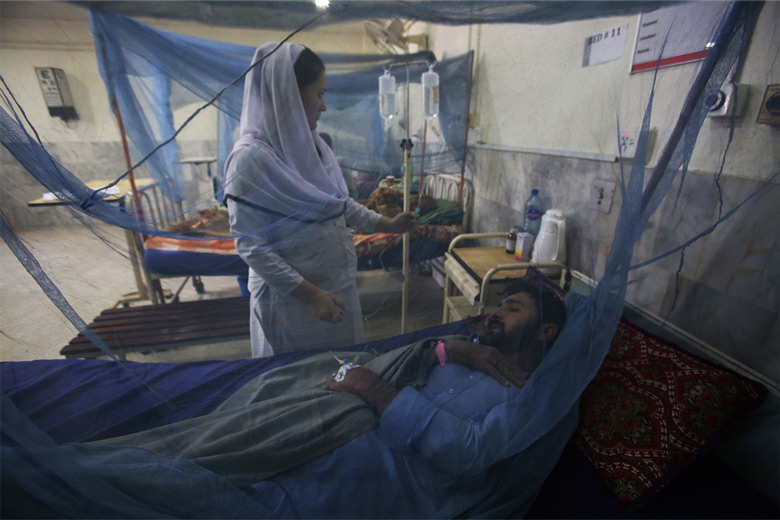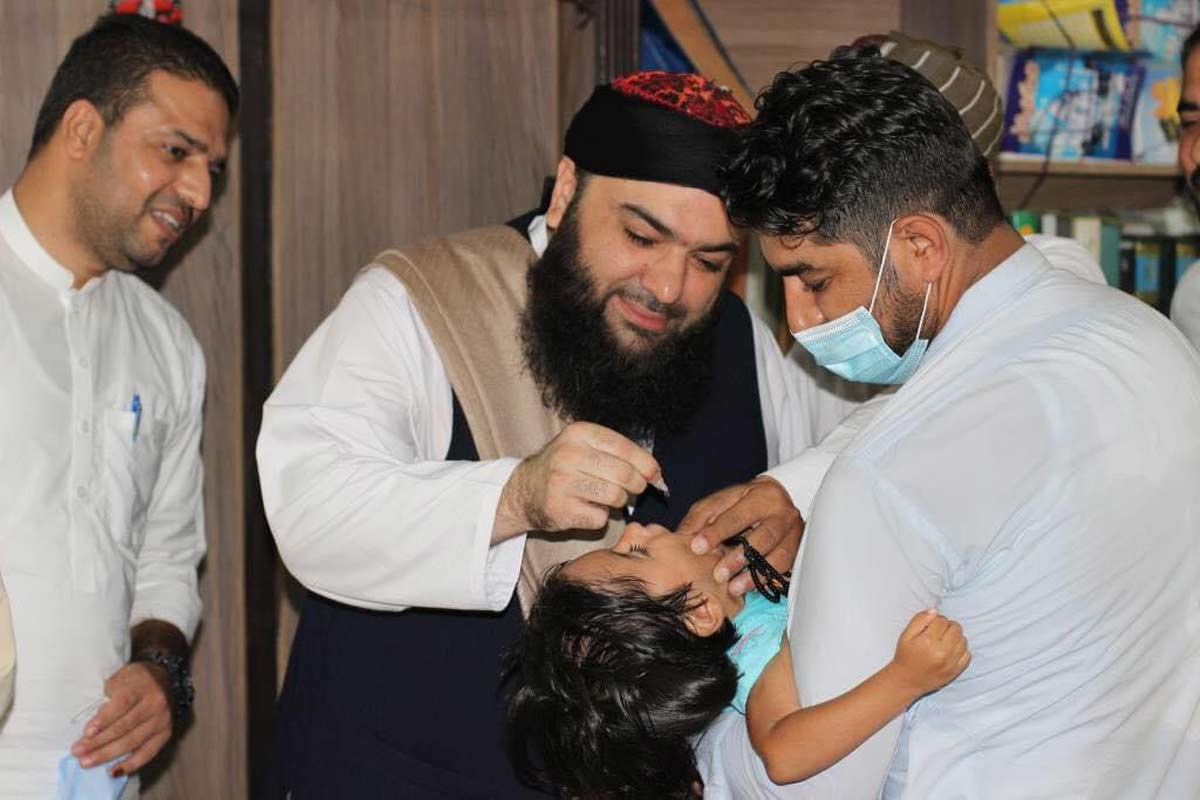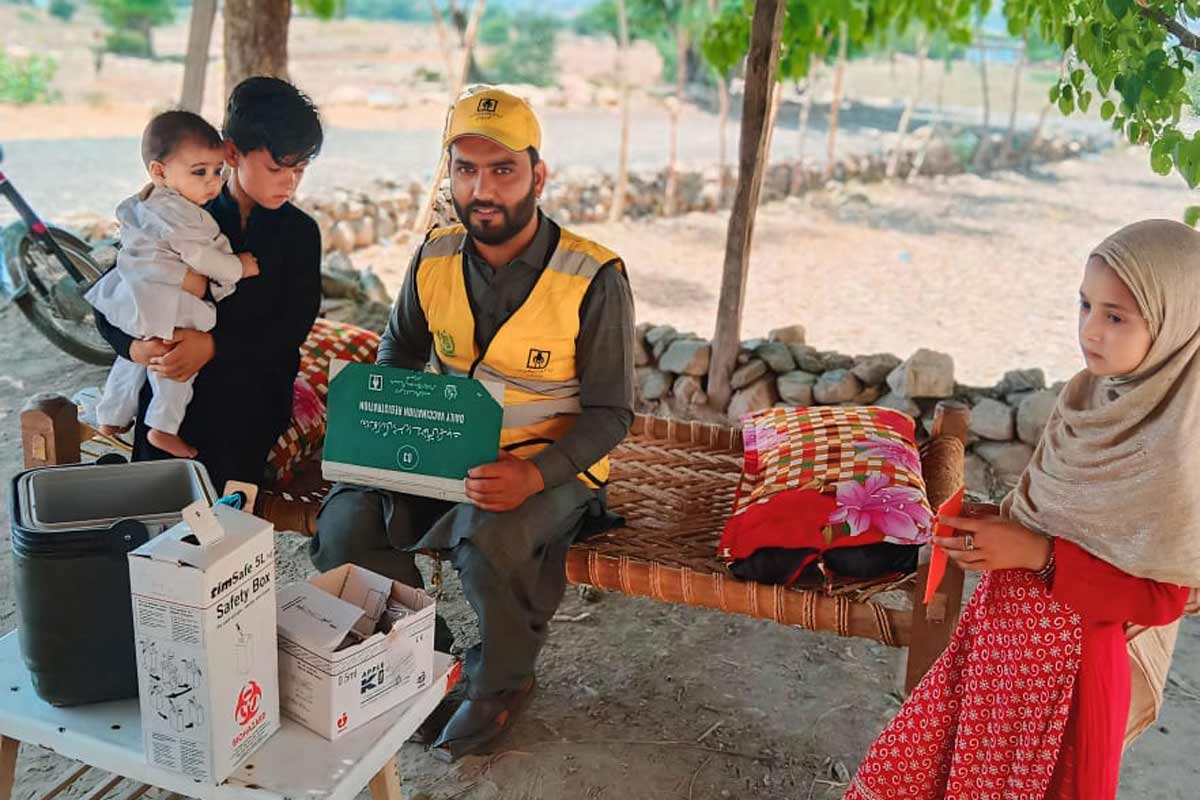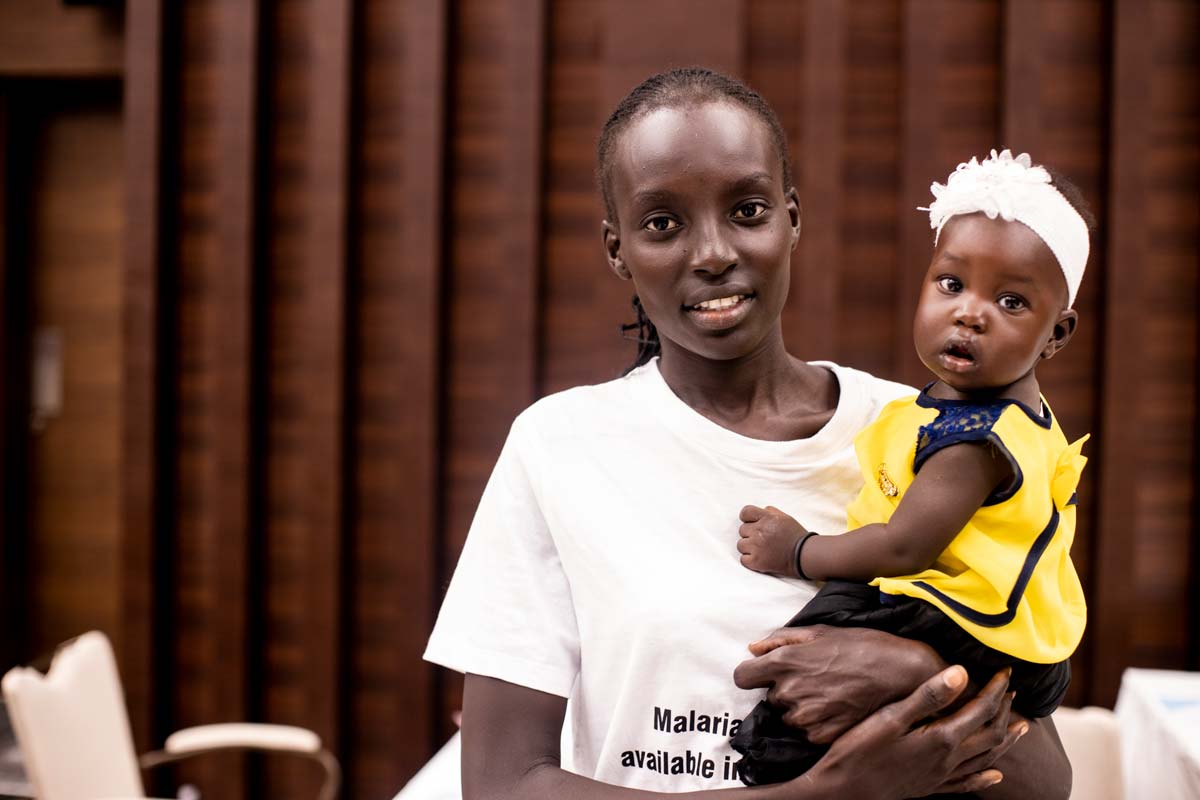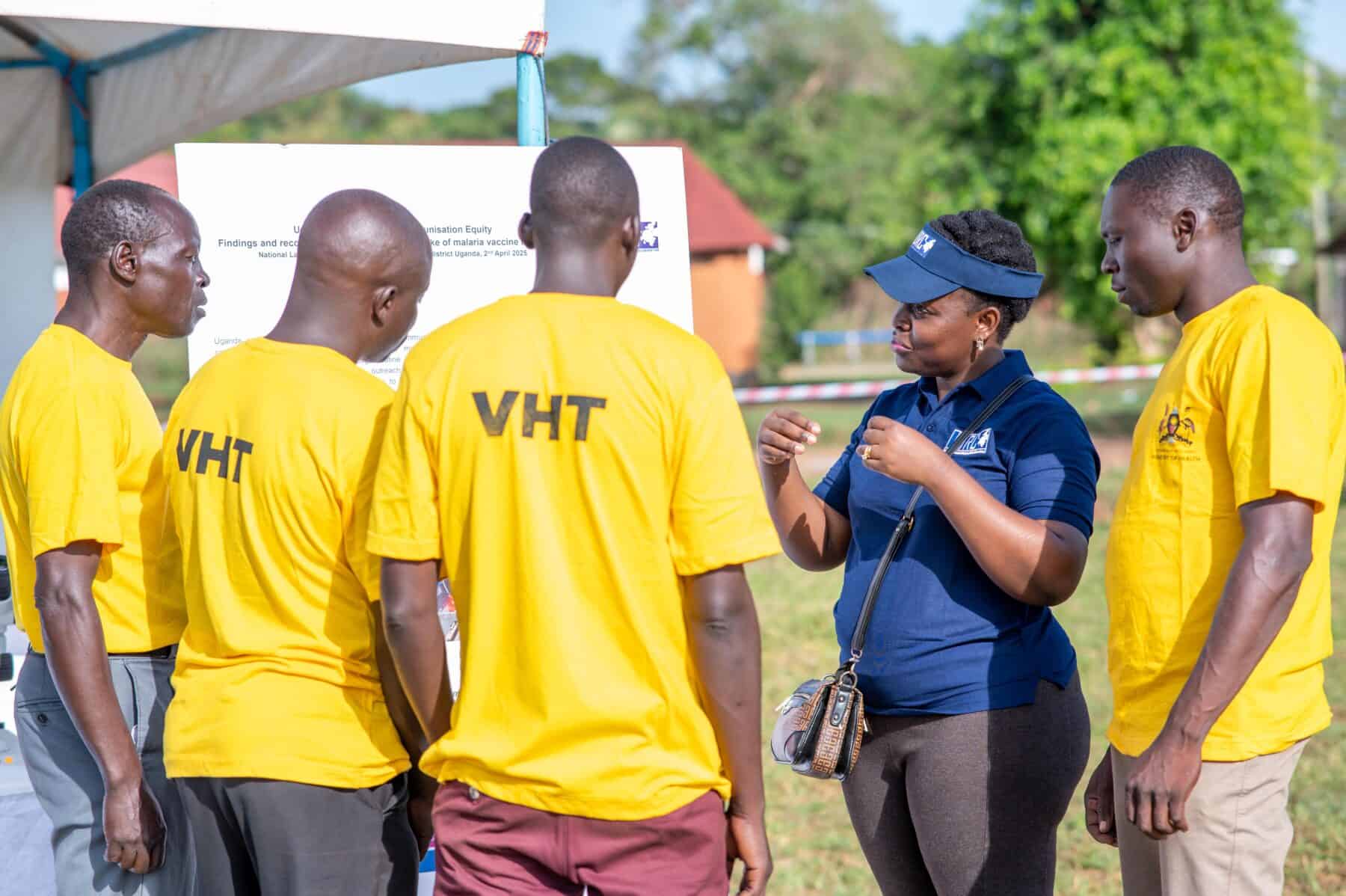Hospitals in this Pakistan province are designating a special room for trans patients
Transgender activists in Khyber Pakhtunkhwa say it’s a step forward – here’s why.
- 5 July 2024
- 6 min read
- by Adeel Saeed
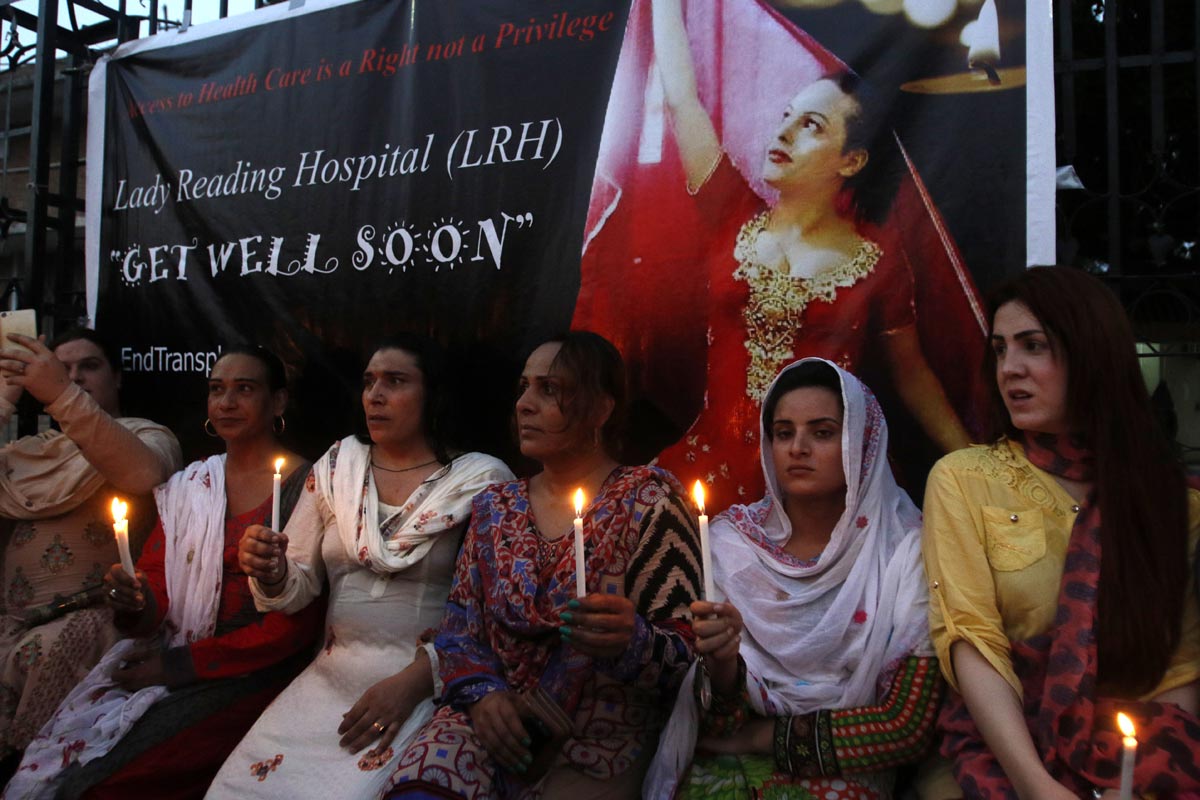
Khyber Pakhthunkhwa’s recent announcement that a dedicated room will be reserved in public hospitals for the care of transgender patients is being hailed by trans activists in the province as a forward step – a move towards dignified access to proper care for a highly marginalised and underserved community.
A room of one’s own
On April 1, Chief Minister of Khyber Pakhtunkhwa (KP) province Ali Amin Gandapure issued instructions to the provincial health department stipulating that a separate room should be reserved for trans people in District Headquarter hospitals.
The announcement garnered widespread commendation from among the transgender community and civil society organisations, with some hailing it as a step around the obstruction to specialised health service that stigma and discrimination represent.
“Access to better health care service was a dream for transgender community who experienced multiple challenges including harassment, discrimination, denial of care and non-acceptance in case of admission at both men and women wards at hospitals,” comments Katrina Khan, a transgender rights activist who organises vocational training to empower trans people.
Transgender people deserve the same level of health care and access to treatment as is provided to anyone else, Khan emphasises.
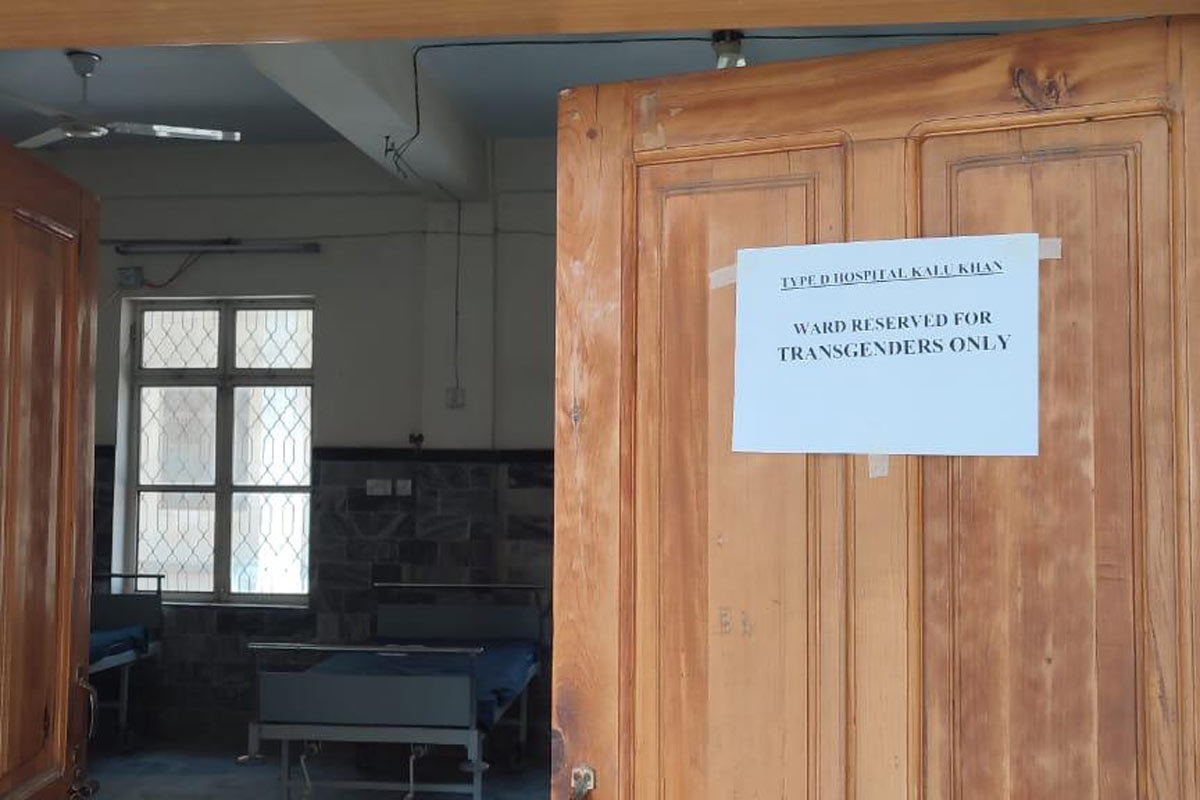
Paying more for less
Khan relates a personal anecdote that, for most Pakistanis, would barely be worth a mention. She recently paid a visit to Lady Reading Hospital (LRH), the largest teaching hospital in KP, with a headache and fever. However, for Khan, it was something of a milestone: in the past, she would have avoided a trip to the public facility, and preferred private clinics for the sake of privacy.
“Access to better health care service was a dream for transgender community who experienced multiple challenges including harassment, discrimination, denial of care and non-acceptance in case of admission at both men and women wards at hospitals”
- Katrina Khan, transgender rights activist
That privacy came at a cost. “At private clinics we had to pay substantial amounts as fees for consultation on minor health issues, while at public sector hospital it was totally free check-up, a great financial relief for me in the prevailing wave of price hikes in our country,” she said.
“Ease of mind”
“The [government’s] decision has emboldened our confidence of visiting public sector hospitals with ease of mind and to benefit from health facilities,” opined Farzana Riaz, President of the Khyber Pakhtunkhwa chapter of TransAction Alliance.
Until now, Riaz says trans people have typically only visited hospitals in case of serious illness – too often in the wake of violence. “Since 2015 till now around more than 100 transgender fell victim to violent attacks in Khyber Pakhtunkhwa, mostly due to altercation with male friends, around 10% due to honour killing and several due to refusal of friendships,” Riaz shared.
Even in these brutal cases, they’ve been confronted with sneers, outright insults and breaches of confidentiality, she said.
More than a safe space, Riaz hopes the new policy will send a message to disrespectful health care workers to change their attitudes towards trans people in need.
When it comes to accommodating trans health care needs, there’s an awfully long way to go. Riaz recounted the distressing case of a trans rights activist called Alisha, who died in a hospital in Peshawar in 2017 due to treatment delays, occasioned by doctors’ indecision as to which ward she should be treated in – male or female.
Had there been a separate room at that time, Alisha would have been directly sent for treatment and saved, Riaz said, her voice choked.
The low rates of confidence in the health system among trans people can be gauged from the fact that only seven members of the trans community were registered as of 2023 with the KP government’s flagship health insurance initiative, Sehat Insaf Card, which grants access to free medical care valued up to a total of 1 million rupees (US$ 3,597) annually, for dwellers of KP, said Riaz.
“Elevate health”
Terming the announcement “ground-breaking,” Civil Society Alliance Young Omang, a leading national advocacy group for sexual and reproductive health rights, declared in a statement that the decision promises to be a step towards comprehensive and accessible health care services for all, particularly the especially vulnerable transgender community.
"The decisive action will significantly elevate health and social status of the transgender community in Khyber Pakhtunkhwa," commented Qamar Naseem, a noted advocate for transgender rights and author of a research paper analysing the gaps in public health policy for sexual and gender minorities in Pakistan.
In the report, which was researched by interviewing 240 transgender and intersex individuals, Naseem finds that health staff do not treat transgender persons in a gender-sensitive manner, and need training. The health department should take measures to create awareness of social and institutional stigma that create fear and barriers to health care for sexual and gender minorities, he recommends.
Have you read?
Inclusive diagnostics spell disease control gains
Fear of stigmatisation by medical staff is known to restrict visits of transgender people to medical facilities, limiting the community’s access to diagnostic testing for serious health threats like HIV/AIDS and COVID-19, observed Heer Jamal, a trans woman and activist for her community members.
Jamal is currently working with a United National Development Programme (UNDP) project on transgender health, and is advocating for increased awareness among the trans population about HIV/AIDS treatment.
The initiative has succeeded in persuading around 300 transgender people to undergo testing for HIV/AIDS. Of these, 137 were found to be living with HIV and were enrolled in the national Integrated HIV Control Programme for free treatment.
If trans people are hesitant to access care at health facilities in general, that’s only more severe when it concerns diagnoses that carry stigma even within the trans community, Jamal said.
She recalled the case of a trans woman who was diagnosed with HIV and died on the street in Peshawar a couple of years ago. She had been expelled from her flat-share by her roommates because of their fear of contracting the disease.
“The [government’s] decision has emboldened our confidence of visiting public sector hospitals with ease of mind and to benefit from health facilities,”
- Farzana Riaz, President of the Khyber Pakhtunkhwa chapter of TransAction Alliance
Currently, the system too often relies on happenstance to diagnose and bring into care trans people unknowingly living with HIV. Muhammad Asim, who leads on transgender access to health care at Lady Reading Hospital (LRH), recalled that recently, a transgender woman arrived to LRH for treatment of a broken leg due to an accident, and during blood test, the patient was found to be HIV-positive.
The LRH administration not only treated her fractured leg, but also started HIV treatment through registering her under the AIDS Control Programme of the Health Department.
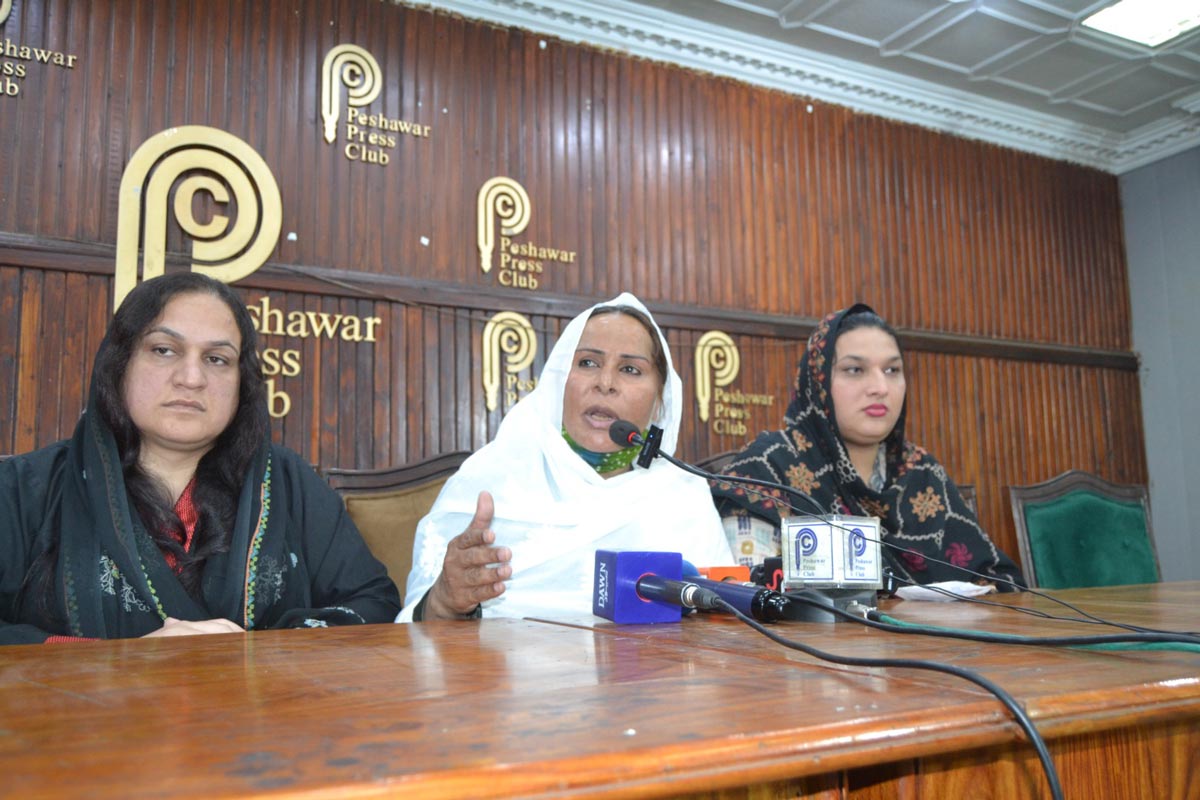
Opening doors to free HIV/AIDS care
“The Health Department of Khyber Pakhtunkhwa is providing free-of-cost treatment of HIV infection to 137 number of transgender in the province,” said Dr Yasir Hayat Taj, Deputy Programme Manager Integrated HIV, Thalassemia Control Programme, Khyber Pakhtunkhwa.
Out of these 137 people living with HIV, around 59 are registered with LRH, where they are also getting psychological counselling, said Hilal Ahmad, a psychologist with the AIDS Control Programme.
The patients are getting free medicine and viral load testing every six months, Hilal told VaccinesWork.
“We have issued instructions to medical staff in major hospitals for providing proper treatment to transgender community by ensuring their privacy,” said Syed Qasim Ali Shah, Health Minister Khyber Pakhtunkhwa.
Talking to VaccinesWork, the Minister said that the facility is initially available in six divisional headquarters, and will be extended soon to all the major hospitals of the province.
He also urged the transgender community to avail themselves of the new facility, and come to hospitals with ease of mind, and access the free-of-cost treatments they may need – helping the government achieve its goal of advancing the right to health to all citizens.
